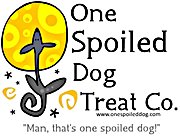Food allergies are common in dogs and can cause uncomfortable symptoms such as itching, digestive problems, and ear infections. Choosing the right treats for a dog with food allergies is crucial for managing these symptoms and supporting their overall health. Allergy-friendly treats can help avoid triggering reactions and provide a safe, tasty reward for your pet.
Understanding Food Allergies in Dogs
Food allergies in dogs occur when their immune system reacts negatively to certain proteins or ingredients. Common allergens include chicken, beef, dairy, wheat, and corn. These ingredients can cause various symptoms when ingested, making it important to identify and avoid the offending substances.
Signs Your Dog May Have a Food Allergy
-
Skin Irritation and Itching
One of the most common symptoms of food allergies in dogs is itching, which can lead to skin redness, rashes, or hot spots. You may notice your dog excessively scratching, licking, or biting certain areas, especially around the paws, ears, and face. -
Digestive Issues
Dogs with food allergies often experience digestive problems such as vomiting, diarrhea, or gas. These symptoms can appear shortly after eating or develop over time with consistent exposure to the allergen. -
Ear Infections or Redness
Recurring ear infections, ear redness, or a strong odor from the ears can also indicate a food allergy. These symptoms often accompany other signs like itching or digestive issues.
Features of Allergy-Friendly Dog Treats
-
Limited Ingredient Diets (LID)
Allergy-friendly treats often feature limited ingredient diets, which contain fewer components, making it easier to avoid allergens. This simplicity helps identify and eliminate potential triggers while still providing essential nutrients. -
Hypoallergenic Ingredients
Hypoallergenic treats are made with ingredients less likely to cause an allergic reaction. They typically avoid common allergens like chicken and wheat, opting for novel proteins and alternative carbohydrate sources. -
Grain-Free and Gluten-Free Options
Some dogs are sensitive to grains or gluten, making grain-free or gluten-free treats a safer choice. These treats replace grains with ingredients like sweet potatoes, peas, or quinoa to reduce the risk of allergic reactions.
Best Ingredients for Dogs with Allergies
-
Novel Proteins
Novel protein sources, such as duck, venison, kangaroo, or rabbit, are ideal for dogs with allergies. These proteins are less commonly found in dog foods, which reduces the likelihood of triggering a reaction due to previous exposure. -
Alternative Carbohydrate Sources
Instead of traditional grains, allergy-friendly treats often include alternative carbohydrates like sweet potatoes, chickpeas, or quinoa. These ingredients are less likely to cause digestive issues and provide fiber and essential nutrients. -
Natural Additives for Skin and Coat Health
Ingredients like omega-3 fatty acids, coconut oil, and flaxseed can help soothe itchy skin and improve coat health. They also provide anti-inflammatory benefits that support the overall well-being of allergic dogs.
Recommended Dog Treats for Dogs with Allergies
-
Freeze-Dried Single-Ingredient Treats
Freeze-dried treats made from a single ingredient, such as lamb liver or fish, are excellent options for dogs with allergies. They contain no fillers or additives, reducing the risk of triggering a reaction. Brands like PureBites or Stewart offer a variety of single-ingredient treats. -
Limited Ingredient Biscuits and Chews
These treats are formulated with a minimal number of ingredients to reduce allergen exposure. Look for treats that use novel proteins and avoid common allergens. Brands like Natural Balance and Zuke's offer limited-ingredient treats designed for sensitive dogs. -
Homemade Allergy-Friendly Dog Treats
Making treats at home allows you to control the ingredients and avoid allergens. Simple recipes using safe ingredients like pumpkin, coconut flour, and novel proteins can provide a delicious and allergy-friendly option for your dog.
Tips for Choosing the Right Treats
-
Always Read Labels Carefully
Check the ingredient list thoroughly to avoid hidden allergens. Be aware that some ingredients may be listed under different names, so it's essential to recognize all potential allergens. -
Conduct an Elimination Diet if Necessary
If you suspect your dog has a food allergy, consider an elimination diet. This involves feeding your dog a diet free from common allergens and slowly reintroducing them to identify the cause. Consulting with a veterinarian during this process is recommended. -
Consult Your Veterinarian
When managing food allergies, your veterinarian can provide valuable guidance on choosing the right treats and avoiding potential allergens. They may recommend allergy testing or specific hypoallergenic diets to help manage your dog's condition.
Conclusion
Choosing the best dog treats for dogs with food allergies involves understanding the symptoms, avoiding common allergens, and selecting high-quality ingredients. Allergy-friendly treats, such as those with novel proteins, limited ingredients, or single-ingredient options, can help keep your dog safe and healthy. Always consult your veterinarian for advice on managing your dog's allergies and monitor their symptoms for any changes.





